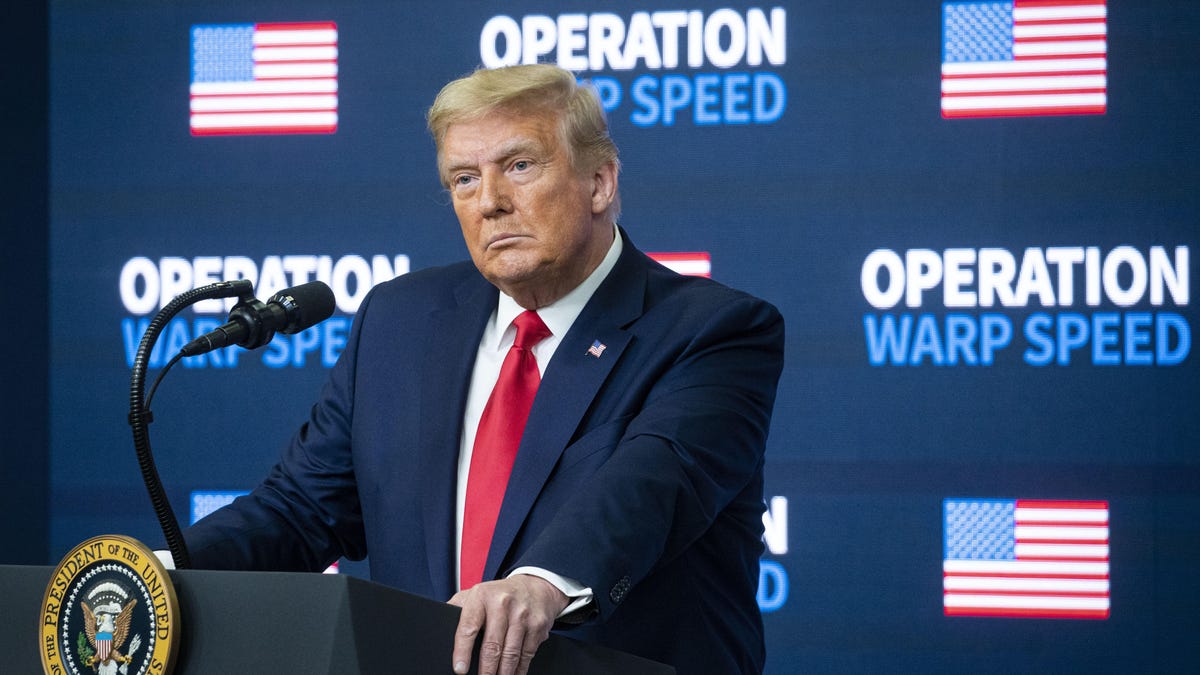House approves defense spending bill without Section 230 repeal
The bill passes with a veto-proof majority, which is significant because Trump says he'll veto the bill unless it repeals an unrelated law protecting social media.

The House voted to approve an annual spending bill President Trump has threatened to veto.
The House passed the annual defense spending bill on Tuesday by a bipartisan majority large enough to override a veto President Donald Trump threatened if the bill didn't strike down an unrelated federal law shielding social media companies from liability.
The National Defense Authorization Act was approved by a vote of 335-78, much more than the two-thirds needed to overturn a veto by Trump. The $740.5 billion annual authorization bill helps determine troop levels and new weapons systems, among other national defense decisions. The bill now heads to the Senate.
Trump had urged House Republicans to vote against the bill because it lacks a repeal of Section 230 of the 1996 Communications Decency Act and includes an amendment that would create a commission to rename military bases and monuments that are now named in honor of Confederate commanders.
"I hope House Republicans will vote against the very weak National Defense Authorization Act (NDAA), which I will VETO. Must include a termination of Section 230 (for National Security purposes), preserve our National Monuments, & allow for 5G & troop reductions in foreign lands!" Trump tweeted Tuesday.
Section 230 is a decades-old law that protects online publishers such as Facebook and Twitter from liability for the content generated by users and posted to their sites. Democrats and Republicans on Capitol Hill have railed against the law, agreeing it must be changed.
Calls for change come amid Republicans' criticism of social media companies and their CEOs. Republicans allege the companies are biased against conservative views and give liberal politicians a pass. Democrats, meanwhile, argue that the Section 230 shield prevents social media companies from doing more to moderate their platforms and take down or limit content, such as hate speech and disinformation about COVID-19 and the elections.
The ultimatum comes as Trump still refuses to admit publicly that he lost the presidential election to former Vice President Joe Biden. Social media posts from the sitting president have falsely claimed the election was stolen. And Trump has continued to tweet and retweet items that contain disputed information, prompting Twitter to slap warning labels on those posts. Additionally, baseless claims of election fraud from a variety of sources have also appeared on Twitter, as well as on YouTube and Facebook.

